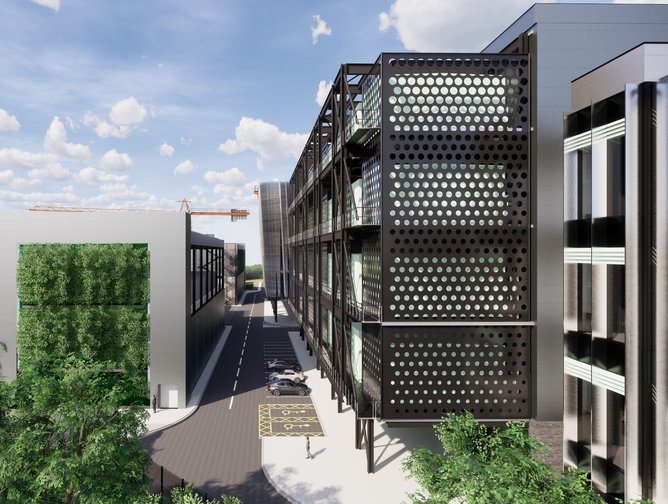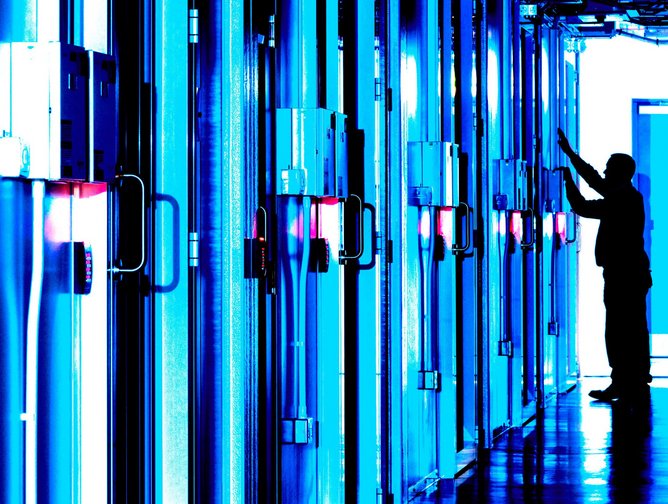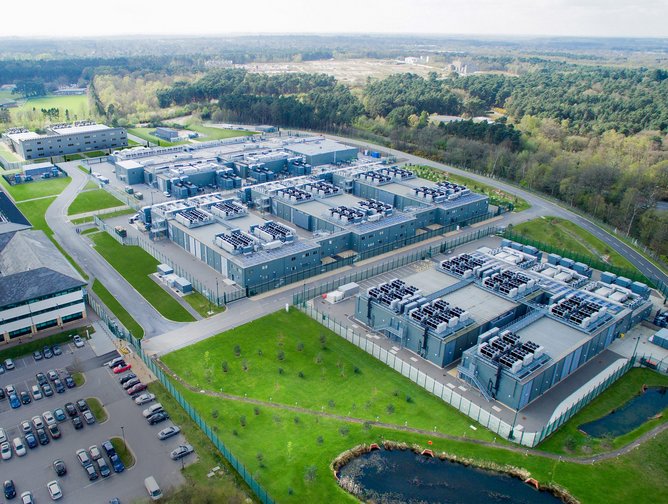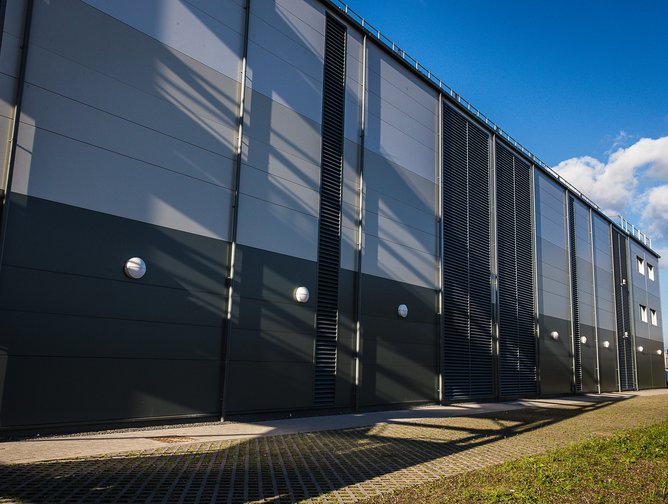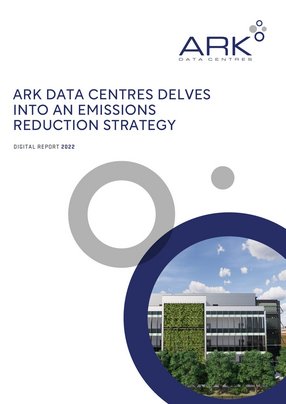Ark Data Centres delves into an emissions reduction strategy
The sustainability discussion comes with controversial views and misconceptions on how responsible organisations actually are. When using the word ‘sustainable’ or anything that relates to the subject, most industries will be subject to the spotlight from either consumers, partners or their boards. The data centre industry is one that has received a lot of attention in this area and since the data centre became a staple for daily life—supporting many aspects of digital transformation, organisations have been working on more efficient and less carbon-intensive methods of operation.
As both businesses and individuals become reliant on digital ecosystems, data storage is a major contributor to the challenge data centres’ have in becoming sustainable. An example of how consumers negatively contribute, is the increased number of photos and files backed up to clouds, which are reliant on data centres—and their energy consumption—to retain them. For businesses, this is similar as they digitise their filing systems and carry out all processes on decentralised systems.
One of the organisations in charge of storing and making this data available is Ark Data Centres, a supplier of unique data centre solutions in a multi campus environment with diverse fibre connectivity. The company began its first development in 2008, following the acquisition of land for its first data centre facility. It has been steadily expanding ever since.
Its Head of Energy and Sustainability, Pip Squire is an advocate for sustainable data-centre operations and even took to the stage at Sustainability LIVE to explain more about the company’s efforts to make digital solutions efficient while providing a service that requires constant attention and energy supply.
With more than 40 years in the construction industry, Squire spent 17 of them working in civil engineering and worked on a broad range of projects, focusing in the end on power, power supplies and power generation. Following this, Squire was headhunted by an American Design and Build contractor, and he spent 10 years working on the design and construction of power plants, with a focus on renewable energy systems. Power and renewable energy led to the data centre industry which has been his focus for the last 15 years.
Energy purchasing is critical, but challenging
As companies decarbonise their data centre operations, the development of new sites and facilities only tackles part of the issue. Firms must look at ways to reduce emissions across existing sites and this can be achieved through purchasing, but it’s not a clean-cut process. As Head of Energy this is an area of the business that Squire holds a significant stake in.
“At the moment, buying energy is quite tricky given where the energy market is, but it's not just about buying sustainable and renewable energy. It's also about how we make sure that the energy is used as efficiently as possible, and how we also report and share that with our customers,” says Squire.
“As part of sustainability and energy efficiency, it will move away from just energy efficiency to water efficiency, to heat reuse, to asking how we begin to report under the greenhouse gas protocols.”
Increasing emissions demand efficiency systems
With continuous improvement and sustainability embedded in the company’s DNA, the firm is working on ways to mitigate unnecessary emissions and push further efficiencies across its facilities.
Systems are put in place to not only to prolong the lives of data centres—cooling as an example—but to make operations more efficient. These solutions are important for reducing the environmental impacts of data centres, but Squire believes there are current limitations on emissions reduction, which will require further means of action.
To put it simply, “what are we going to do for offsetting?,” asks Squire.
“Because at some point we'll have minimised our energy demand to a point where we can't cut it down anymore. CO2 will be down at the very limit, but to get to net zero, we're going to have to offset it.”
Carbon offsets are not for all industries, but Squire advocates their importance in the company’s ability to reach its emissions reduction target of net zero by 2030. The only way to mitigate emissions is to look deeper into their sources, which is challenging.
Squire says that due to the nature of Scope 3, “you don't have any real control over it. And we started last year looking at our Scope 3 emission and looking at the ones that we thought we could directly impact or have the most chance of impacting in our day to day operations.”
“There's been quite a significant change. COVID-19 has done a lot for meetings over the internet, but you can't substitute key meetings with a zoom call. So there will be an increase in our business travel in 2022 compared to 2020 and 2021, but it's going to be nothing as big, I hope, as it was in 2019.”
The company is also very active in seeking changes beyond the data centre and employee commuting is an important one to consider. Based on the 2019 figures—as the unprecedented events in 2020 and 2021 saw increased homeworking the company was able to analyse and report on the greenhouse gas (GHG) emissions involved in employee commuting.
“We have reports on greenhouse gas emissions for 2019 and 2020 based on questionnaires from our staff and from our mileage records and in parallel to that, we've started sharing our data,” says Squire.
The firm is also encouraging its employees to make the switch to alternative energy sources for travel through the installation of electric vehicle charging points across its sites.
Squire says: “all our data centre campuses now have electric vehicle charging points to promote electric vehicles on our sites and their use by those who have been sold on the idea of going electric.”
Sustainable data centres require supply chain visibility
But can you implement some level of control over Scope 3 emissions? This is the future that Ark is working towards as it strives for visibility of its entire value chain. Larger suppliers are more likely to implement their own ESG strategies and work with their customers to achieve the same goal, but the difficulties lie within Ark’s smaller supplier-base.
Squire says: “If it's a small niche company, we have got to take them on that journey to be able to get them to comply with our reporting requirements, and that I think is going to be our biggest challenge over the coming 18 months.”
Beyond emissions, the firm is looking towards the future—the end-of-life procedure—of its data centres. Knowing where energy and components arrive from, represents a percentage of its supply chain visibility efforts, with another being its waste portfolio. What does it do with its data centre facilities when they reach ‘end-of-life’?
Ark has carried out a lot of work measuring the embedded carbon of its facilities and implementing modular construction systems, which have been instrumental in the company’s ability to not only reduce its carbon, but to deliver new units in response to the increasing demand for data centre capacity.
“95% of our facilities are totally recyclable at end of life, which is rather more than if we had a traditional concrete style building,” Squire says, before explaining how the organisation achieves this, and the supply chain itself is a critical area to be measured.
“It's the question of, how do you define the boundaries of where the limit of your steel CO2 emissions are? If it's UK based, as the bulk of Ark steel is, we know associated emissions. If the steel comes from China, it's a different number, all of that sort of stuff, but there are standard methods and we're working through that, particularly on the new builds.”
Seeing sustainability from both angles
Sustainability may be on the lips of major organisations and governing bodies across the board, but in the words of Pip Squire: “You're beginning to see it in the major corporates coming through now.”
“I'm pleased to say our investors fully support our sustainability ambitions. So we've now got ourselves into a position where they are giving us credit for sustainable targets and hitting sustainable targets on a year on year basis.”
“And this means in the long term, that financial institutions are now driving development for companies like us to be more sustainable in terms of their delivery with sustainable goals, which need to be measured and reported on annually.”
Squire highlights the reality of data centres at present, which are restricted by the current research around clean energy implementation. Squire believes that Ark “can't be very much more CO2 efficient because we have pushed the laws of physics to their limit, and you can't change physics.”
In the interest of corporations as well as customers, Ark is exercising transparency across its operations and is forthcoming with its limitations. Meanwhile, consumer behaviour plays a significant role in its ability to be sustainable. The more data storage is consumed unnecessarily—files that are kept but not used—the more data centre capacity is required, which has major ripple effects for energy footprints across the globe.
“Do you need to keep all data stored for all time?,” Squire asks. “Because if you don’t, then we need to start finding ways of getting stuff off of the internet. If you think about it, the internet also, through the way it's managed, looks at what's in your profile and what is most attractive to you, and it then sends you to that particular link. People have to be educated on the massive potential consequences of their seemingly trivial data usages. We all have a part to play.”
